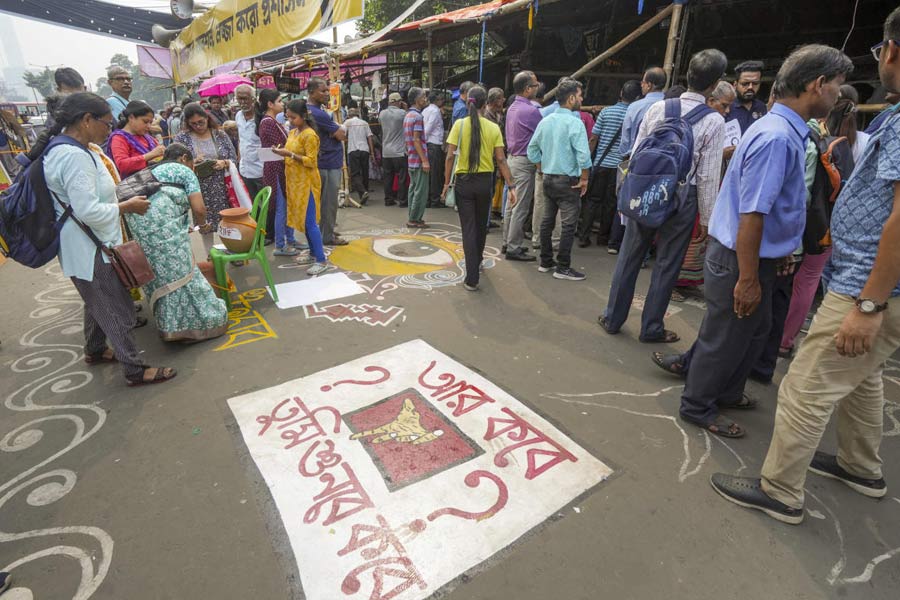Trinamul leader Kunal Ghosh has put forward a 13-point charter of demands to the government doctors that includes no private practice, no recommendation of pathological tests from preferred laboratories, prescribing only generic medicines and not branded ones, and no commissions and tours from pharma companies.
“Hoy sarkari, noile besarkari bechhe nin, duto ek sange kono niyam dekhiye cholbe na [Either government or private, choose one. You can’t continue both showing any rules],” Ghosh wrote on his X (formerly Twitter) handle..
While most other Trinamul leaders have taken a backseat, Ghosh has been firing salvos at the junior doctors on almost a daily basis in the ongoing war between the Mamata Banerjee government and the medical community in Bengal led by junior doctors.
The junior doctors’ hunger strike in the aftermath of the rape and murder of a postgraduate trainee doctor at the state-run RG Kar Medical College and Hospital entered its 13th day on Thursday.
So far, six fasting junior doctors have had to be hospitalised following severe deterioration of their health parameters. At present, eight medics are on an indefinite fast at the protest site in Esplanade in the heart of Calcutta.
Ghosh also challenged the senior and junior doctors to contest on CPM tickets in the ensuing by-polls at the six Assembly seats in Bengal scheduled for next month. A day earlier, he had posted that the Trinamul would sweep all six seats, implying that the RG Kar protests would not affect the ballot battle.
In the early ’90s, when Jyoti Basu was the chief minister, Bengal’s Left Front government had banned doctors in the teaching hospitals – recruited under Medical Education Services – from running private chambers.
The rule saw an exodus of well-known medics from the prized teaching hospitals in Calcutta. The rule was reversed a decade later when Surjya Kanta Mishra held the health portfolio.
Doctors in the medical colleges or in the district, sub-division and block level hospitals have the right to choose if they want to go for private practice.
Those who opt out of private practice are given an allowance for which the Mamata Banerjee government has set an upper limit of Rs 24,000 in medical colleges and Rs. 20,000 in the district hospitals and health centres.
Last year, the state government had initiated disciplinary proceedings against four surgeons at a government hospital in Malda and another doctor at a government hospital in Murshidabad for allegedly engaging in private practice while continuing to receive the allowance for giving up private practice.
“Like in every profession, black sheep exist in the medical community too but the nobility of the medical profession cannot be diminished,” said Shantanu Sen, Trinamul’s former Rajya Sabha member and former national president of the Indian Medical Association.
"Those who take the non-practising allowance but run their own private practice are definitely guilty, but those in the government healthcare sector who have opted for private practice have the right to do so,” Sen said.
“About commissions and other allegations, for many years the IMA has been leading the ‘say no to kickback’ movement,” he claimed.
Subarno Goswami, additional general secretary of the All India Federation of Government Doctors’ Association and joint secretary of the Association of Health Services Doctors, said the government doctors were not doing anything wrong.
“The government will have to change the rules,” Goswami said.
“Kunal Ghosh should ensure that the ruling party leaders will not take bribes and cut-money. All private healthcare establishments have to pay the local Trinamul leaders, the burden of which falls on the patients. If cut-money is stopped, the establishment costs will come down automatically. Can he [Ghosh] ensure that?”











